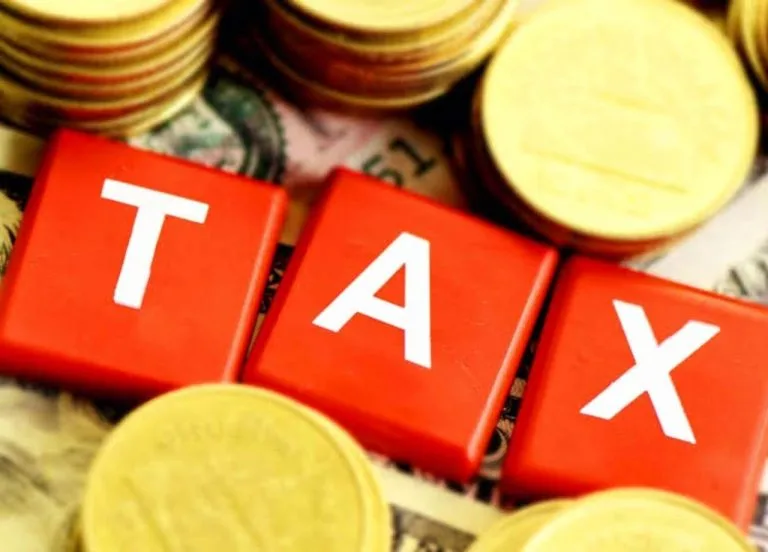The Nigerian government is making significant efforts to revamp the tax system. With four new bills under review by the National Assembly, these reforms aim to simplify tax processes, ease the burden on small businesses, and improve tax collection efficiency. On the surface, this sounds like a step toward a more streamlined and fair tax system. But is it really as beneficial as it appears?
While some Nigerians see these changes as a positive move, others are questioning if now is the right time. The rising cost of living—driven by increased electricity and fuel prices—has many worried. Will these reforms bring relief, or will they add more strain to an already struggling populace?
Let’s take a closer look at the proposed tax bills and what these mean for us.
The Four Proposed Tax Bills
The Nigerian government has introduced four key bills aimed at transforming the country’s tax landscape:
1. The Nigeria Tax Bill 2024
2. The Nigeria Tax Administration Bill
3. The Nigeria Revenue Service (Establishment) Bill
4. The Joint Revenue Board Establishment Bill
Each bill targets specific aspects of Nigeria’s tax system, seeking to make it simpler and more efficient. Here’s a breakdown of these proposals.
The Nigeria Tax Bill 2024: Merging Complex Tax Laws
One of the primary goals of the Nigeria Tax Bill 2024 is to eliminate the confusion caused by overlapping tax laws. Small businesses, in particular, face the challenge of paying taxes to federal, state, and local governments, creating unnecessary complications. This bill seeks to merge all tax laws into a single, comprehensive framework.
For Individuals: A Fairer Personal Income Tax (PIT) System
The bill introduces a more progressive Personal Income Tax structure with reduced rates for low-income earners:
First N800,000 – 0%
Next N2.2 million – 15%
Above N50 million – 25%
This means individuals earning less than N800,000 annually will pay no income tax. This is a significant improvement compared to the current system.
For Businesses: Easier Taxation for Small Enterprises
Small businesses stand to gain as the threshold for Companies Income Tax (CIT) exemption is raised from N25 million to N50 million in annual turnover.
The Nigeria Tax Administration Bill:
Filing taxes in Nigeria can often feel like an overwhelming task, with businesses forced to navigate fragmented systems across various government agencies. The Nigeria Tax Administration Bill aims to centralize these processes, offering a user-friendly system for tax registration, filing, and dispute resolution.
This streamlined approach is expected to save time, reduce errors, and make compliance easier for individuals and businesses alike.
The Joint Revenue Board Establishment Bill:
This bill proposes the replacement of the current Joint Tax Board (JTB) with a stronger and more efficient Joint Revenue Board. The new board will improve collaboration between federal and state governments.
Introducing a Tax Ombudsman
One of the standout features of this bill is the introduction of a Tax Ombudsman. This role will ensure fairness in the tax system and protect Nigerians from unjust taxation practices.
The Nigeria Revenue Service (Establishment) Bill:
Under this bill, the Federal Inland Revenue Service (FIRS) will be renamed the Nigeria Revenue Service (NRS). The restructuring aims to improve revenue-sharing mechanisms between the federal, state, and local governments.
Proposed Revenue Allocation Formula
The bill suggests a new formula for distributing tax revenue:
Federal Government: 10%
State Governments: 55%
Local Governments: 35%
This redistribution gives states more resources to address local challenges and meet community needs.
Public Reaction:
The proposed tax reforms have triggered mixed reactions across Nigeria.
Supporters’ Perspective
Many Nigerians view these changes as a step in the right direction. They believe the President’s efforts could simplify tax procedures and boost the economy. The prospect of reduced tax rates for low-income earners and small businesses has been particularly well-received.
Critics’
However, not everyone is convinced. Recent increases in electricity and fuel prices have significantly impacted the cost of living, leaving many citizens financially stretched. Critics argue that introducing new tax policies now could worsen the situation, urging the government to give Nigerians time to recover from these economic challenges.
Reactions on Social Media
Discussions about the proposed tax reforms have sparked debates on social media. While some users applaud the government’s bold initiatives, others express skepticism.
Here’s a snapshot of the reactions:
“The new tax structure looks good on paper, but can the government deliver on these promises?”
“Finally, some relief for small businesses. I hope this isn’t just another policy that stays on paper.”
“With the current cost of living, why is the government adding more reforms now?”
What Does This Mean for Nigerians?
The success of these tax reforms depends on their implementation. If properly executed, they could:
Simplify tax processes, making compliance easier for individuals and businesses.
Provide relief to low-income earners and small enterprises through reduced rates and exemptions.
Improve revenue allocation to states and local governments, addressing community-specific needs.
However, the timing remains a significant concern. Nigerians already grappling with high living costs may struggle to embrace additional changes, even if they promise long-term benefits.
Conclusion
The Nigerian government’s proposed tax reforms represent an ambitious effort to improve the tax system. While the bills offer the potential for a more equitable and efficient framework, their success hinges on effective implementation and timing.
For many Nigerians, the question remains: Will these changes bring relief, or will they add to the challenges already faced by citizens? As the National Assembly deliberates these bills, the nation watches closely, hoping for a future where taxation is simpler, fairer, and better aligned with the needs of the people.



